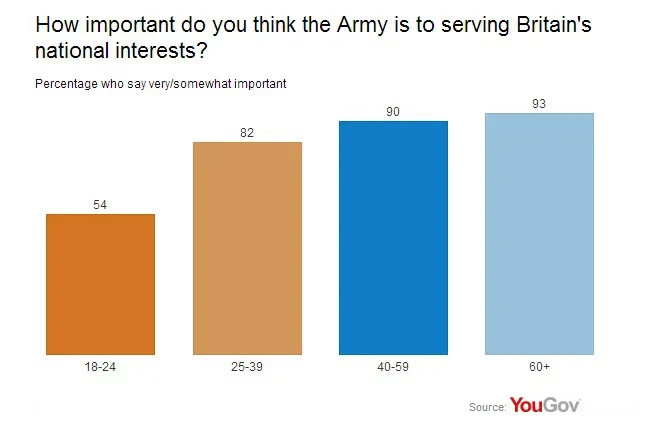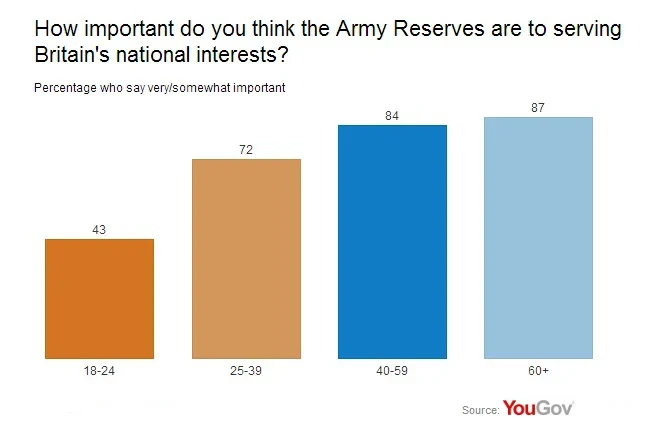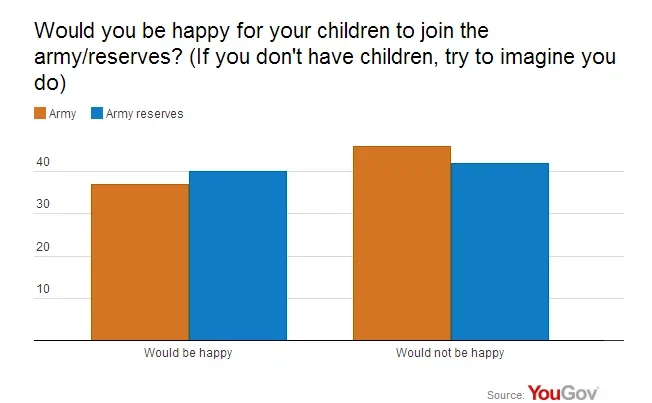As the British Army struggles to recruit new soldiers, YouGov polling finds that Britons tend to think less of the army's importance the younger they are
The British Army faces a recruitment crisis as the government’s decision to close dozens of recruitment offices and hand a £440m contract to outsourcing firm Capita is failing. New research by YouGov finds that the further down the age-scale you go, fewer Britons see the Army and the Army Reserves as important.
While 90% of 40-59 year olds and 93% of those over 60 see the army as important to Britain’s national interests, 82% of 25-39 year olds and 54% of 18-24 year olds feels the same.

And while the majority of those over 60 (71%) and 40-59 year olds (61%) say the army is ‘very’ important, only half (50%) of 25-39 year-olds and 27% of the lowest age-group have the same strong feeling.
The government’s new defence strategy is to offset cuts in spending to the regular Army with increased recruitment to the Army Reserves, or Territorial Army as it was formerly known.
87% of those over 60 and 85% of 40-59 year olds say the Reserves are important to Britain’s national interests, compared to 72% of 25-39 year olds and 43% of those aged 18-24.

Neither are Britons more likely to be happy for their children to join the Reserves than the Army. While 37% would be happy for their children (imagined if they do not have them) to join the Army, only 3% more (40%) feel the same about the Reserves.

The government promised to increase the Reserves from 10,000 to 30,000 by 2018; however in the three months to June it recruited only 367 personnel against a target of 1,432. A memo marked “restricted” states: “The prediction against an overall in-year target of 6,383 is that only 50% of this number will be realised. Predicted performance against a more ambitious 2014-15 target of 11,124 is equally pessimistic.”
Image: Getty





